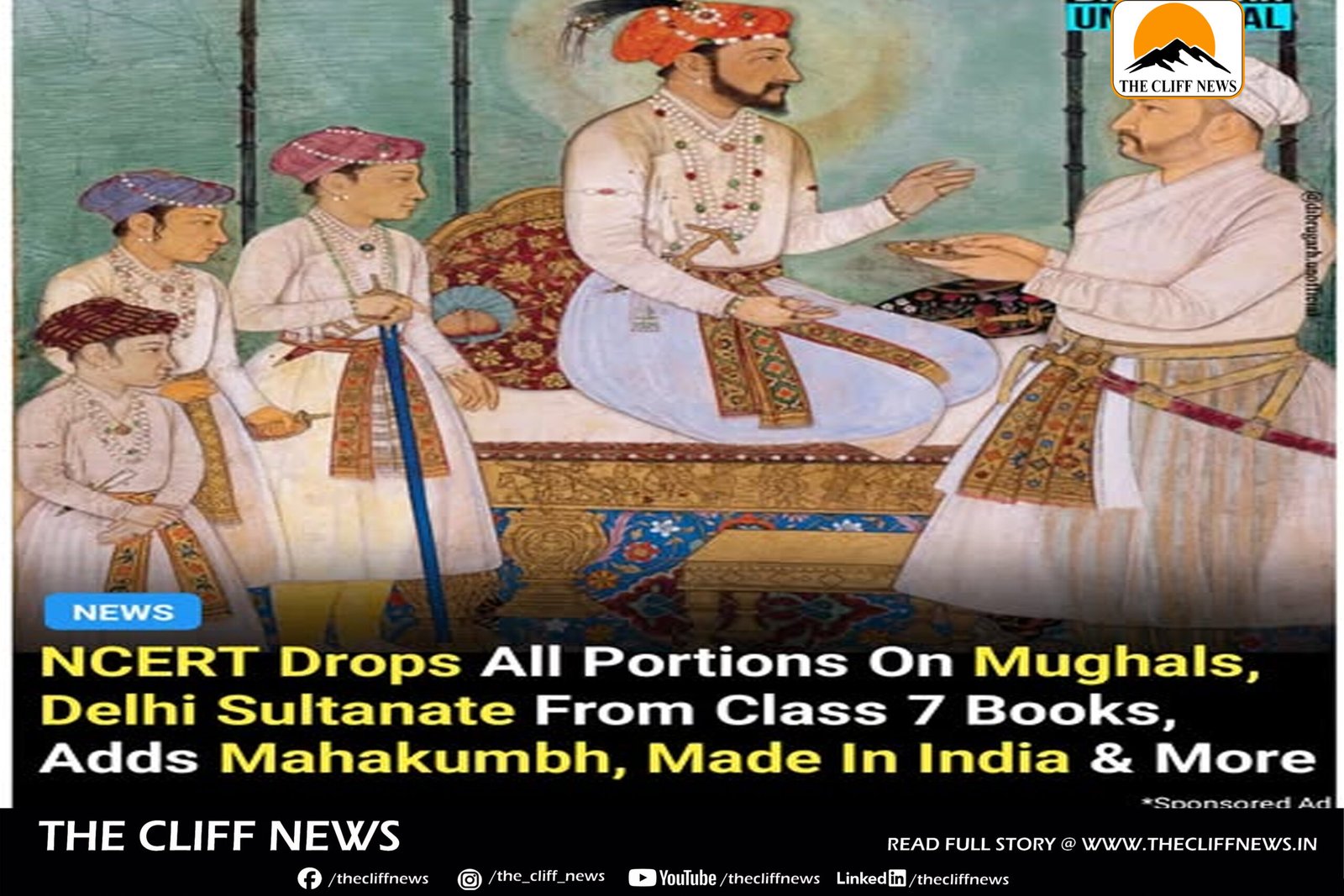The National Council of Educational Research and Training (NCERT) has issued revised history textbooks under the National Education Policy (NEP) 2020 and the National Curriculum Framework for School Education (NCF-SE) 2023, removing key chapters on the decline of the Mughal empire, the rise of regional powers, and southern resistance to the East India Company.
Officials call the move a “rationalisation” exercise aimed at reducing content load, but critics warn that the cuts create major historical gaps.
What’s been dropped
- Class 8: Lessons on Mughal decline after Aurangzeb (1707), successor states, Maratha ascendancy, Afghan contests, and Anglo-Mysore Wars involving Tipu Sultan and Haidar Ali.
- Class 7: Two-page table of Mughal emperors and their policies.
- Class 12: Entire chapter Theme 9: Kings and Chronicles, The Mughal Courts, which explored Persian chronicles, court culture, and imperial administration.
How the Mughals are reframed
Remaining Mughal content has been rewritten with sharper tones:
- Babur described as “ruthless” in conquests.
- Akbar presented through a balance of “political accommodation and coercion.”
- Aurangzeb noted for campaigns and “religious intolerance.”
A footnote titled “No-Blame” asks students to study rulers in context rather than through moral judgements.
Concerns raised
Historians say the changes erase the “missing middle” between Aurangzeb’s death and the establishment of British dominance, a period crucial for understanding India’s political transition. Critics also argue that removing regional figures like Tipu Sultan sidelines southern resistance to colonial expansion.
In Parliament, the Union government defended the move, saying states are free to supplement NCERT content with regional history if they wish.
NCERT’s defence
Officials insist Mughal history is still covered in other grades and that the changes are about streamlining and avoiding repetition, not erasure. They argue the new textbooks follow thematic clusters, encouraging students to focus on cause, effect, and the interplay of politics and culture rather than rote chronology.



